
Municipalities of Venezuela are subdivisions of the States of Venezuela. There are 335 municipalities dividing the 23 states and the Capital District.
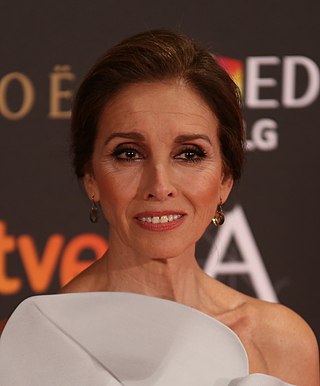
María del Pilar Cuesta Acosta, known professionally as Ana Belén, is a Spanish actress and singer. She and her husband are considered symbols of the Spanish Transition, and her songs and albums often feature boldly-titled works with social and political content.

The history of the Cinema industry in Puerto Rico predates Hollywood, being conceived after the first industries emerged in some locations of the United States, Switzerland, Denmark, Italy, France, Great Britain and Germany. During the US invasion of the island in 1898, American soldiers brought cameras to record what they saw. By 1912, Puerto Ricans would begin to produce their own films. After the early images recorded by the American soldiers in 1898, most of the films produced in the island were documentaries. It wasn't until 1912 that Rafael Colorado D'Assoy recorded the first non-documentary film titled Un drama en Puerto Rico. After that, Colorado and Antonio Capella Martínez created the Film Industrial Society of Puerto Rico in 1916, producing their first film titled Por la hembra y el gallo. Other film companies formed during the time were the Tropical Film Company (1917) and the Porto Rico Photoplays (1919). Puerto Rico was the second Latin American market to produce a sound film, filming Luis Pales Matos's script for Romance Tropical (1934). The film featured Jorge Rodríguez, Raquel and Ernestina Canino, Sixto Chevremont and Cándida de Lorenzo. In the late 1930s Rafael Cobián produced films starring Blanca de Castejón such as Mis dos amores and Los hijos mandan at Hollywood. In 1951, he would produce Mi doble with San Juan as its setting. Mapy and Fernando Cortés would also participate in the Hollywood industry, as well as throughout Latin America.

Ernesto Federico Alterio Bacaicoa is an Argentine-Spanish film, theatre, and television actor. He is the son of Argentine actor Hector Alterio.
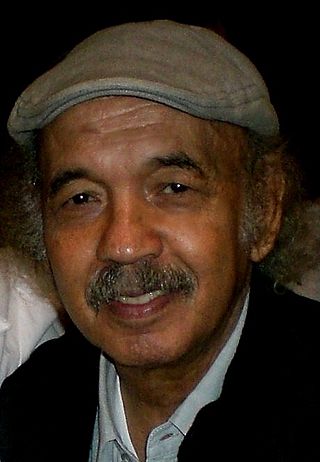
Jacobo Borges is a contemporary, neo-figurative Venezuelan artist. His curiosity for exploring different mediums made him a painter, drawer, film director, stage designer and plastic artist. Known for his ever-evolving style, there is one constant principle that unites his work: "the search for the creation of space somewhere between dreams and reality where everything has happened, happens, and may happen." His theoretical approach and unique, innovative technique has won him acclaim all over the world. He has had solo exhibitions in France, Germany, Austria, Mexico, Colombia, Brazil, Britain and the United States. Today, he is considered one of the most accomplished artist of Latin America. His oeuvre includes a rich body of paintings, a film directed in 1969, and a book The Great Mountain and Its Era, published in 1979. In 1982, a biography by Dore Ashton, called Jacobo Borges, was published in English and Spanish.

The cinema of Venezuela is the production and industry of filmmaking in Venezuela. Venezuelan cinema has been characterised from its outset as propaganda, partially state-controlled and state-funded, commercial cinema. The nation has seen a variety of successful films, which have reaped several international awards. Still, in terms of quality, it is said that though "we can point to specific people who have made great films in Venezuela [and] a couple of great moments in the history of Venezuelan cinema, [...] those have been exceptions". In the 21st century, Venezuelan cinema has seen more independence from the government, but has still been described as recently as 2017 to be at least "influenced" by the state.
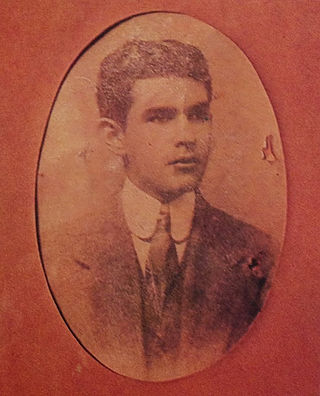
Cruz María Salmerón Acosta was a Venezuelan poet. His sonnets were influenced by the movement of modernismo.
Jacobo Penzo, was a Venezuelan filmmaker, best known for his drama piece The House of Water, shown in the Directors' Fortnight section of the Cannes Film Festival in 1984. The film also represented Venezuela in the Best Foreign Language Film competition at the 57th Academy Awards. Penzo is also a painter and a writer.

The National Cinematheque of Venezuela is a Venezuelan public institution founded on May 4, 1966, by Margot Benacerraf and since then is dedicated to archiving, preserving and presenting film archives in Venezuela. It holds more than 85,000 films, 30,000 photographs, 420 movie posters, 400 scripts and 30,000 film books and magazines.

Juana Acosta Restrepo is a Colombian-Spanish actress. She has appeared in more than 40 films.

Un célebre especialista sacando muelas en el gran Hotel Europa was the first Venezuelan film. It was screened at the Baralt Theatre in Maracaibo, Zulia on 28 January 1897 as the second in a film block of four; the block also featured another film from Maracaibo. Little is known about the film's production, and scholars are uncertain of the identity of its director.

Casiri, also known as Paucarani, is an about 5,650 metres (18,537 ft) high complex volcano in the Barroso mountain range of the Andes, in the Tacna Region of Peru. It consists of four individual volcanic edifices with lava domes; the southeasternmost edifice has been active during the Holocene, producing thick lava flows that have overrun moraines of Pleistocene age. The youngest lava flow has been dated to 2,600 ± 400 years ago. Although no historical eruptions are known, the volcano is considered to be potentially active and is monitored.
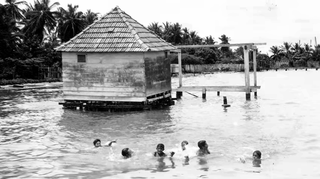
Muchachos bañándose en la laguna de Maracaibo is the second Venezuelan film produced, after Un célebre especialista sacando muelas en el gran Hotel Europa. It was screened at the Baralt Theatre in Maracaibo, Venezuela, on 28 January 1897.
Miguel Cruz Carretero is a Spanish director, writer and producer based in Los Angeles with credits in more than 200 TV episodes including the sitcom Aída and Caiga quien caiga. His first feature film: VULNERABLES, is an independent feature that opened theatrically in Spain and Latin America. The film was 4th at the Peruvian Box-office and acquired by Sundance Channel, TVE and other TV Networks.

Empowered is a 2018 Spanish comedy film directed by Santiago Segura which consists of a remake of the 2016 Chilean film No Filter. The cast is led by Maribel Verdú.

The Daughter is a 2021 Spanish thriller drama film directed by Manuel Martín Cuenca, which stars Javier Gutiérrez, Patricia López Arnaiz and Irene Virgüez.

The Water is a 2022 internationally co-produced drama film with magic realism elements directed by Elena López Riera in her directorial debut feature which stars Luna Pamies, Bárbara Lennie and Nieve de Medina. It is a joint Swiss-Spanish-French production.
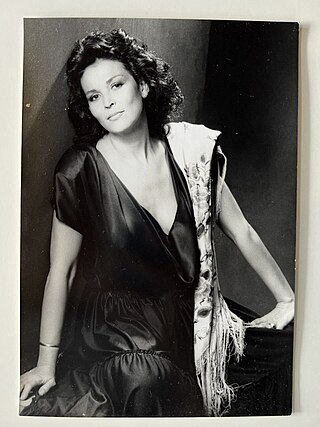
Milagros de las Mercedes Maldonado Blaubach is a cultural promoter, gallery owner, curator, collector, and art advisor. She was born in Valencia, Carabobo state, Venezuela on July 9, 1944. She was the founder and president of La Previsora Foundation, La Previsora Art Gallery and La Previsora Movie Theater. She is currently the President and founder of META MIAMI.

Simón is a 2023 drama film written, directed, co-produced and edited by Venezuelan filmmaker Diego Vicentini. It is about a young Venezuelan protester, Simón, who, after being arrested and tortured during protests in his country, flees the country and seeks asylum in Miami, where he must decide whether to stay in the city or return to Venezuela. As filming took place during the COVID-19 pandemic, precautions were introduced, including frequent testing of the cast and crew, the strict use of masks and set sterilization between scenes, which added unforeseen costs to the production. Premiered at the Florida Film Festival, the feature film has received multiple awards, including Best Feature Film at the Venezuelan Film Festival and Best Narrative Feature at the Heartland International Film Festival. Simón is nominated for the 38th Goya Awards in the Best Ibero-American Film category.

















